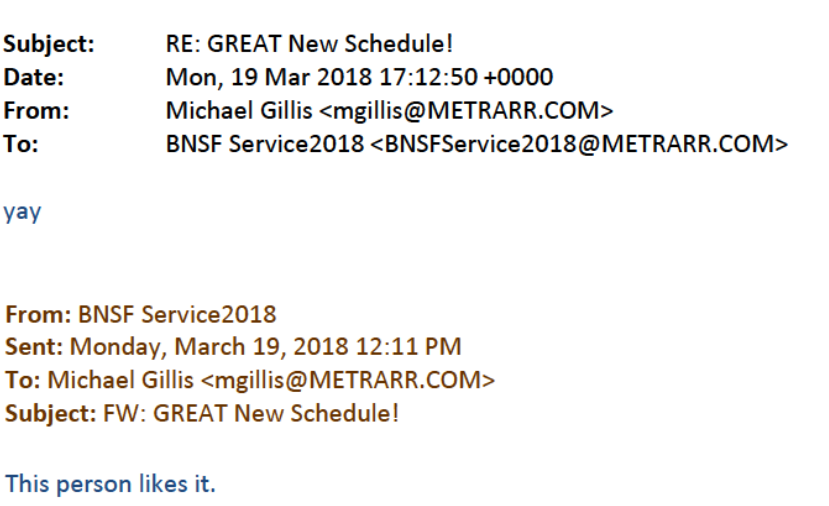Years in the making, Metra is about to implement positive train control (PTC) and its first installation will be on its busiest line – the BNSF. Doing so will require changes to the train schedule. A public records request for the comments reveals that the train riders of the BNSF are generally not happy about the proposed changes.
As a daily BNSF rider, I examined the proposed schedule and found that the new schedule didn’t impact me much; my usual trains would somehow both be earlier by a matter of minutes but also travels would be longer. However, other riders are more severely impacted and I’ve come to believe that the marketing behind PTC is a fallacy. In deciding to hit two birds with one stone, Metra is using the installation of PTC to not only tweak the schedule but to remove trains and stops altogether under the guise of alleviating overcrowding.
Over the last several years Metra has significantly increased its fares, yet performance remains the same. With the proposed changes, many riders feel they will be compelled to drive more often because the trains they depend on are going to be less convenient for their livelihood. This is especially shocking considering how awful and unpredictable traffic in Chicago can be, but given how cheap gas is, it’s not impossible to fathom – especially if monthly parking can be cheaper than a train pass.
Metra fares and schedules work in zones. Stops closest to the city are in Zone A and the zone at the end of the line is Zone H. The most vocal commenters seem to those in zones A through E – particularly the stops for Stone Avenue, Riverside, and Congress Park. Some of the most impacted stops fall are in the 3rd Congressional District of Illinois which is represented by Dan Lipinski, whose dad is an influential railroad lobbyist, while Lipinski himself has passed legislation delaying the requirement to install of PTC.
Regardless of the zone, riders are very concerned that tweaks of minutes will compound in not only lost family time, but also daycare overage fees.
What follows are some of the highlights from the public’s comments. You can download the cache here.
Note: Due to the overwhelming volume of comments, this zip only contains part of the comments. Metra will release more comments in the near future as part of my records request. Based on the sheer volume of negative support, I firmly believe that the remaining records would not change the barometer on the public’s stance on the issue.
![]()
![]()


![]()




And lastly, Metra’s Director of Communication seems to be happy that one person likes the proposed schedule changes.


